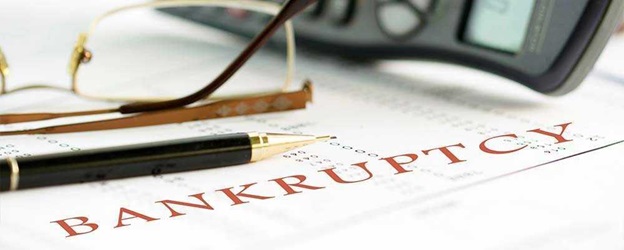Bouncing Back from a Consumer Bankruptcy

Most people think that bankruptcy is the biggest, blackest mark which can ever appear on a credit report. They also dismiss post-bankruptcy success stories as little more than financial fairy tales which do not happen to regular people.
These attitudes are simply wrong. Bankruptcy adversely affects your credit score. That much is true. But this impact is usually not as bad as people think it is.
For one thing, bankruptcy does not “ruin” your credit score, at least in most cases. Typically, repeated late payments and other such negative information has already done that. Bankruptcy just takes your score from bad to worse. Furthermore, bankruptcy usually looks better than foreclosure, repossession and other entries which indicate the debtor gave up. If you file bankruptcy, at least you did something.
As for post-bankruptcy success stories, these stories are real. The individuals and businesses who make the most out of their fresh starts were simply determined to make it work. If you have a plan and are determined to execute it, the same thing will probably happen to you.
Pay Yourself
This recovery method usually applies to Chapter 13 bankruptcy. This kind of bankruptcy involves a monthly debt consolidation payment. Your obligation to make this payment ends when the judge closes the case. To speed their financial recovery, many people keep making this payment, at least for a few months. But instead of paying the bankruptcy court, they pay themselves.
After scrimping and saving for perhaps sixty months, it’s not hard to do the same thing for another few months. Since the bankruptcy debt consolidation payment is usually about the size of a rent or mortgage payment, a few payments could result in a large financial reserve.
The benefits of a monetary reserve are more than financial. That reserve gives many people priceless peace of mind. It also allows them to pay it forward and help other people.
Remain Current on Secured Debts
These payments are the largest single component of your credit score. So, if you do not do anything else on this list, at least make sure these bills are paid on time, and your score will go up sharply.
The aforementioned financial reserve is related to timely bill payment. Most people file bankruptcy because of job loss, chronic illness, or another financial disruption. These disruptions always happen more than once. When they come around again, if you have a reserve, you can keep paying bills on time until the emergency passes.
Borrow Money
Many lawyers advise former debtors to pay cash for everything. But a good Georgia bankruptcy lawyer helps former debtors borrow money.
Usually, this borrowing involves a new car, new furniture, or other secured debt. An attorney can connect you with a lender who works with damaged credit borrowers. Many lenders are anxious to make such loans. They can charge higher interest, since they are high-risk loans.
Lenders are especially willing to work with you if you are upfront about your issues. Tell them about your prior bankruptcy before they run your credit report. That approach avoids unpleasant surprises for both parties. If the bank doesn’t work with you, do not take it personally. It’s just a business decision. And, there are plenty of other banks who do not have similar misgivings.
Such a purchase gives your credit score two bumps. First, as outlined above, you get an additional on-time payment bump. Second, you get an intangible boost. The mere fact that a bank gave you a loan means that you are credit worthy. And, your credit score is essentially your credit-worthiness score.
Remember What You Have Learned
As mentioned, most people file bankruptcy primarily because of a financial storm. However, in most cases, poor spending or saving habits are a contributing cause.
This final point relates back to the Chapter 13 debt consolidation payments. Many families must give up all luxuries, and we do mean all luxuries, to make the Chapter 13 payments on time every month. The end of your bankruptcy should not mean the end of your personal austerity program. Granted, most people throw an end-of-bankruptcy party. You should definitely do that.
Afterwards, however, it’s usually a good idea to go back to Chapter 13 mode. You lived without ordering pizza for five years. It might be a good idea to keep living that way, at least for a while.
If you follow these suggestions, you might be amazed at how fast your credit score goes up. In fact, by the time the filing notation falls off their credit reports, many successful former debtors forgot they filed bankruptcy in the first place.
Please be aware that this article was written and published in conjunction with the help of Gorilla Webtactics, Law Firm Marketing Agency, and does not contain legal advice. Please do not act or refrain from acting based on anything you read in this article.






